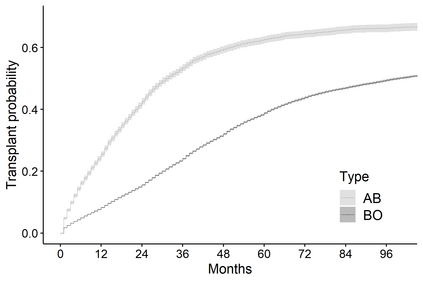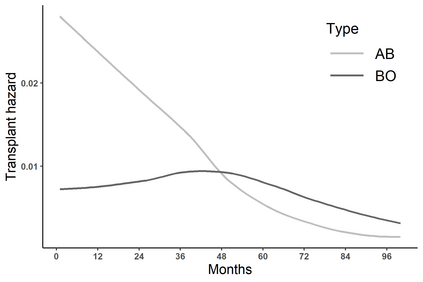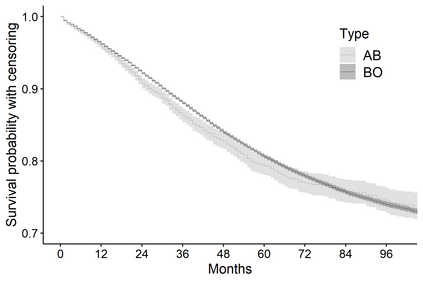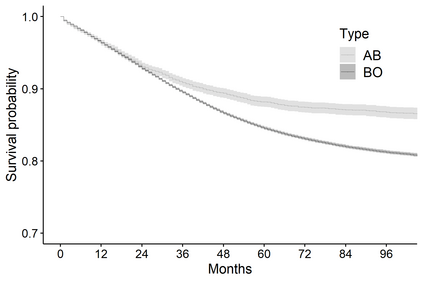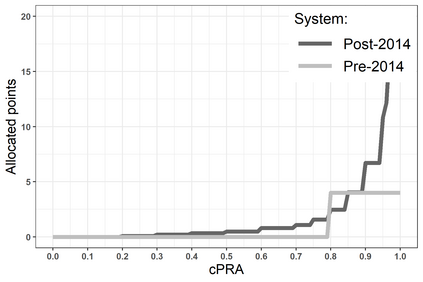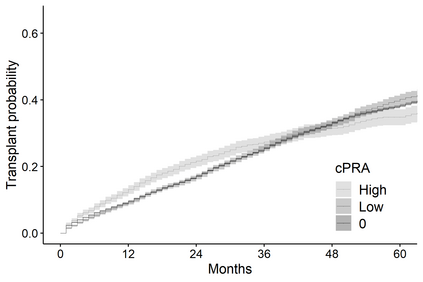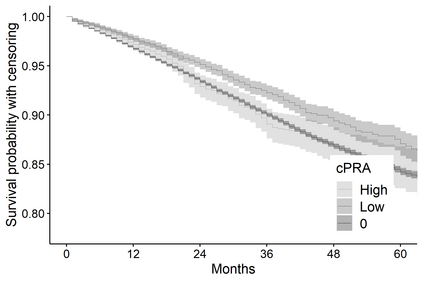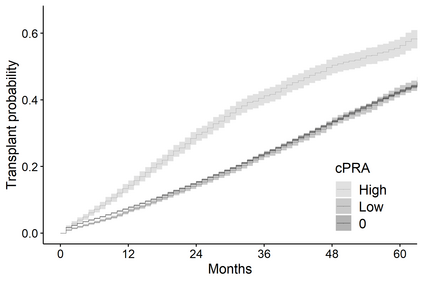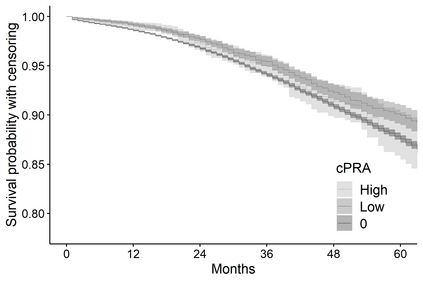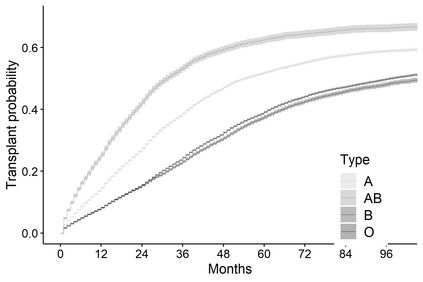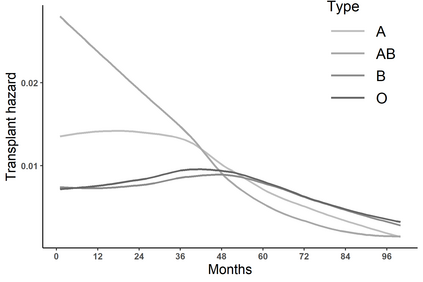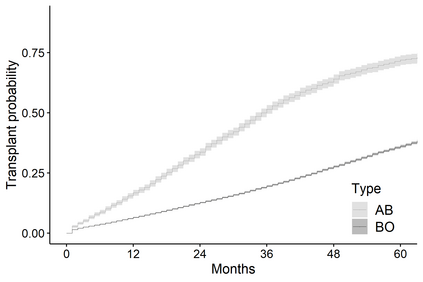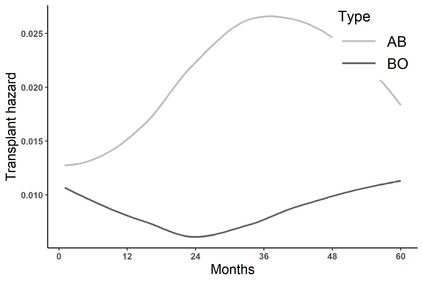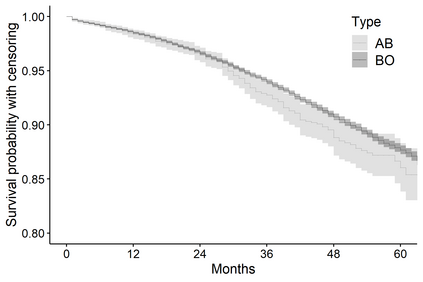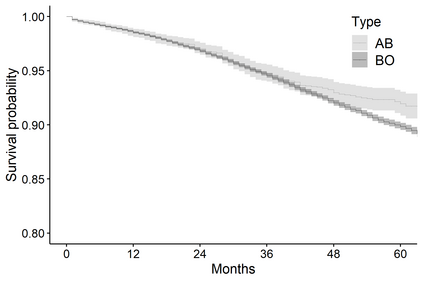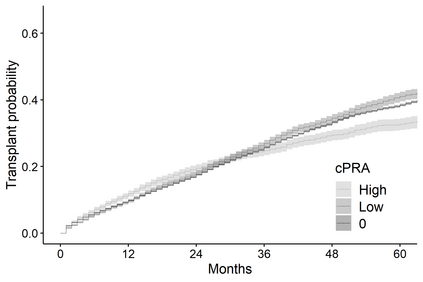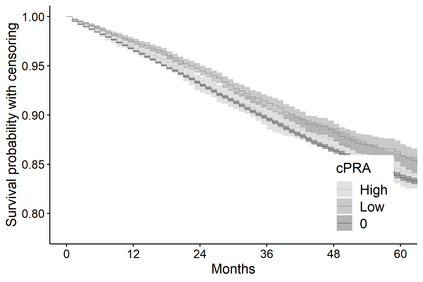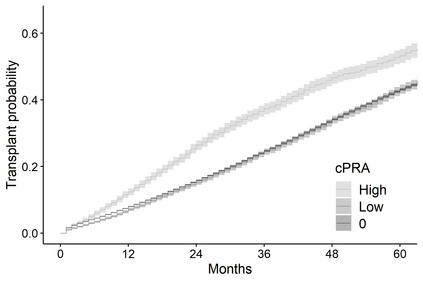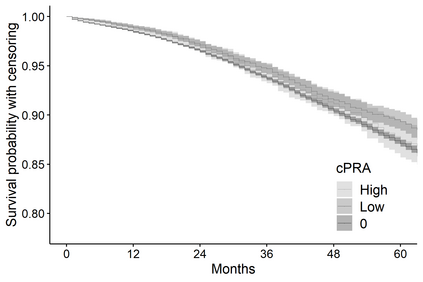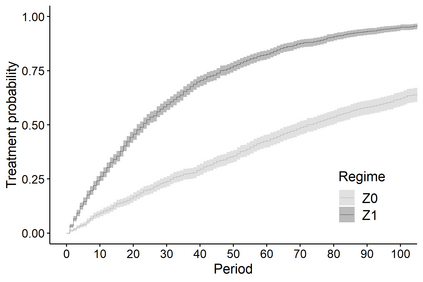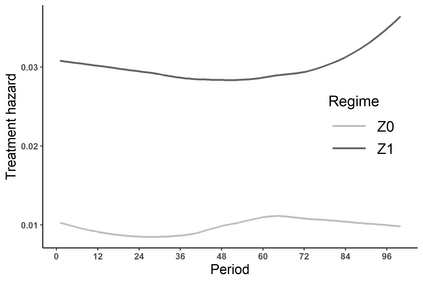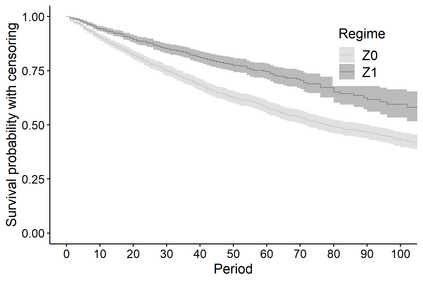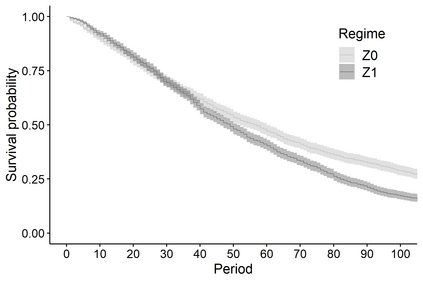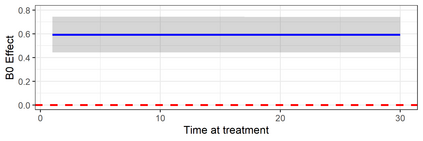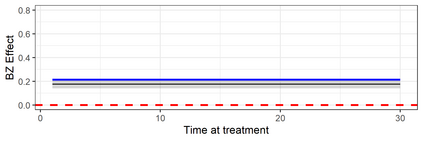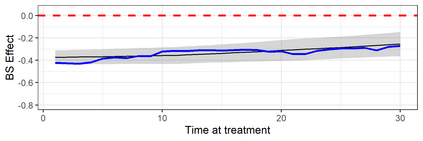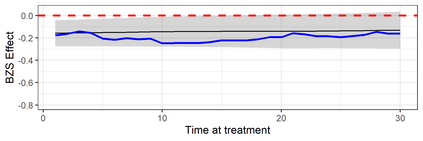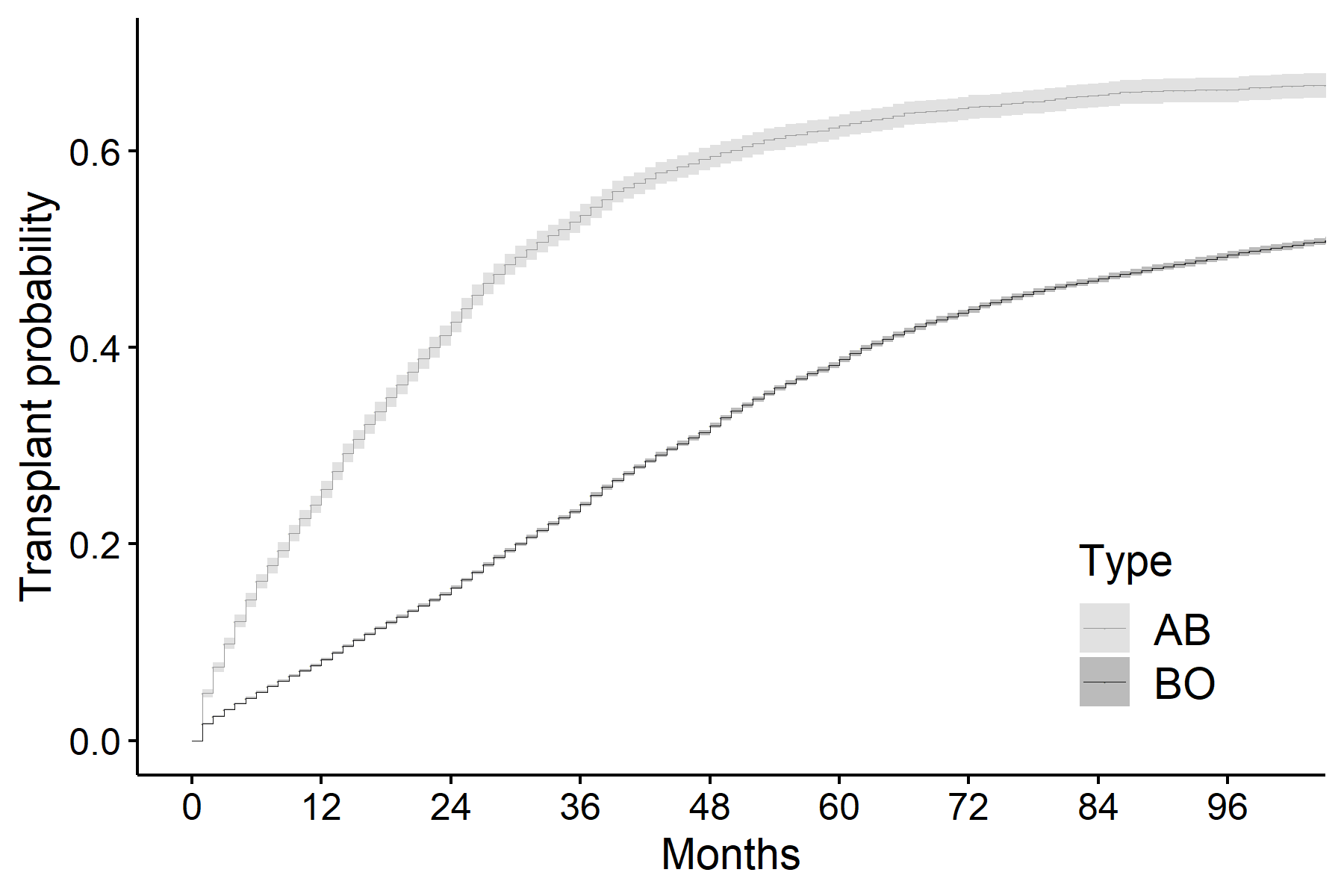This paper proposes a causal decomposition framework for settings in which an initial regime randomization influences the timing of a treatment duration. The initial randomization and treatment affect in turn a duration outcome of interest. Our empirical application considers the survival of individuals on the kidney transplant waitlist. Upon entering the waitlist, individuals with an AB blood type, who are universal recipients, are effectively randomized to a regime with a higher propensity to rapidly receive a kidney transplant. Our dynamic potential outcomes framework allows us to identify the pre-transplant effect of the blood type, and the transplant effects depending on blood type. We further develop dynamic assumptions which build on the LATE framework and allow researchers to separate effects for different population substrata. Our main empirical result is that AB blood type candidates display a higher pre-transplant mortality. We provide evidence that this effect is due to behavioural changes rather than biological differences.
翻译:本文建议了一个因果分解框架, 用于初始系统随机化影响治疗时间的时间环境。 初始随机化和治疗会反过来影响关注期结果。 我们的经验应用考虑了肾移植等待名单上个人的生存情况。 进入等待名单后, 具有AB型血型的个人,即普遍接受者,实际上被随机化到一个具有较高倾向的系统, 以迅速接受肾移植。 我们的动态潜在结果框架使我们能够识别血型移植前的效果, 以及根据血型进行的移植影响。 我们进一步开发动态假设, 以LATE框架为基础, 允许研究人员对不同人口进行分别的影响。 我们的主要经验结果是, AB型血型候选人在移植前的死亡率较高。 我们提供的证据是,这种影响是由于行为变化, 而不是生物差异。

